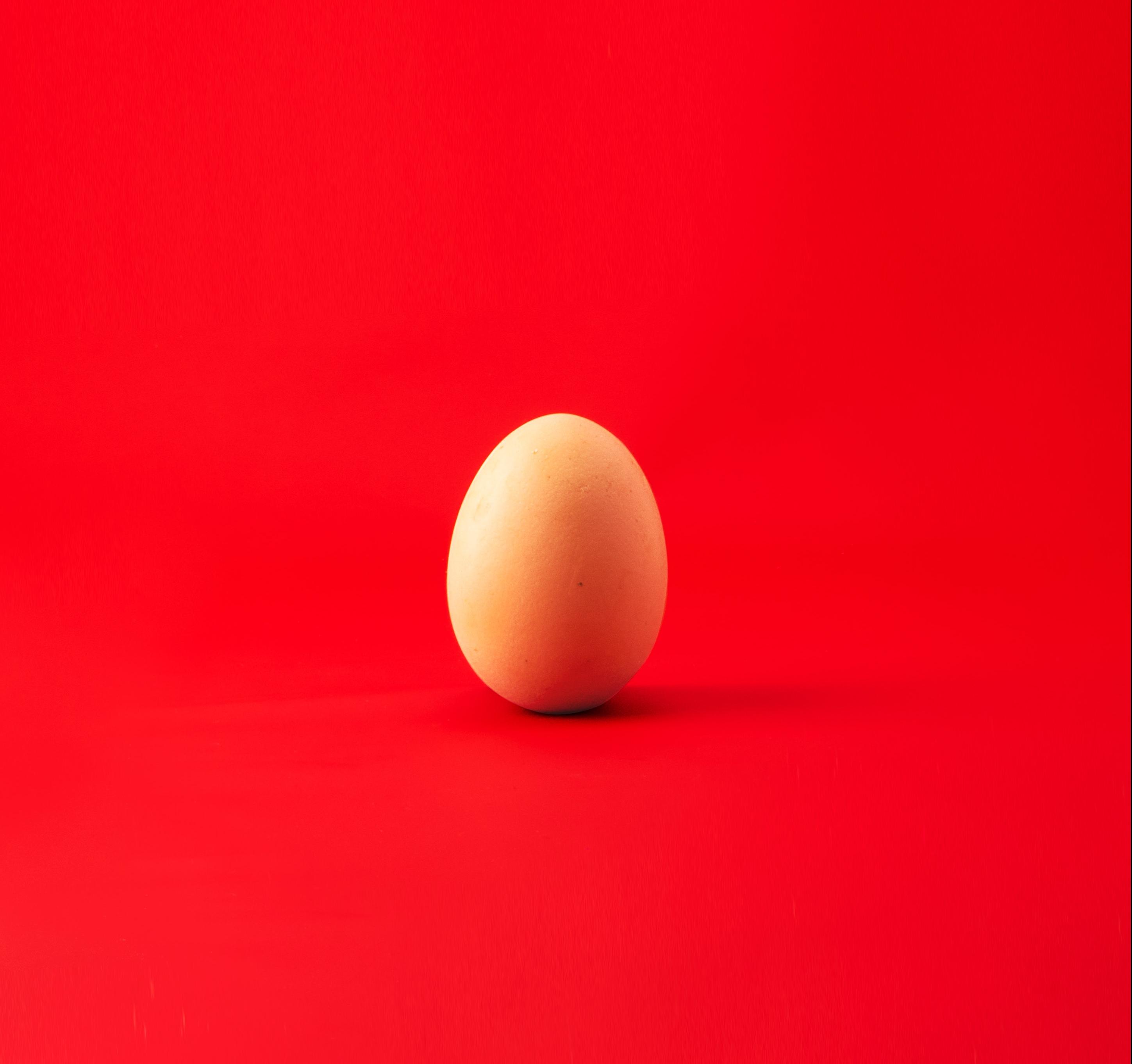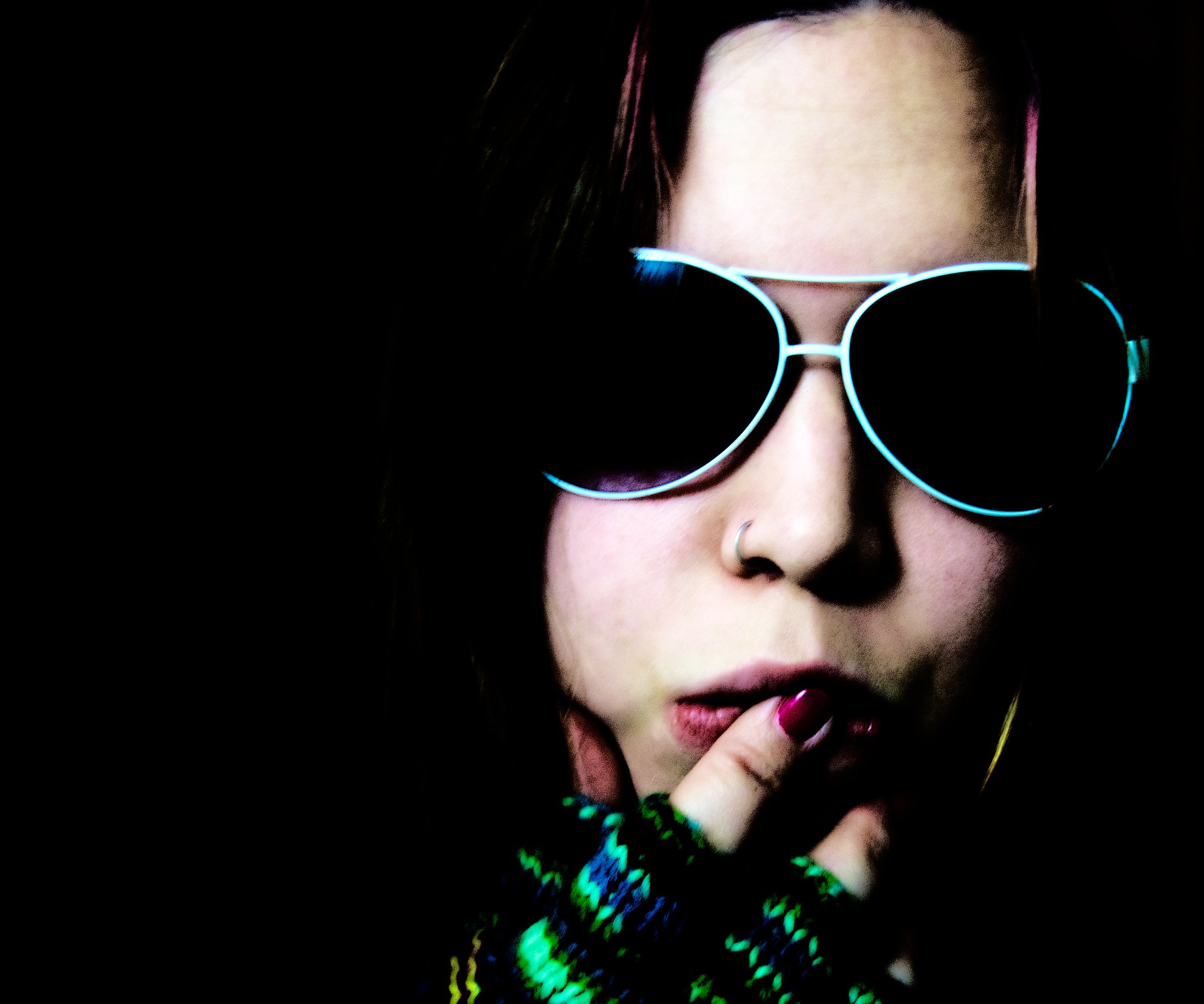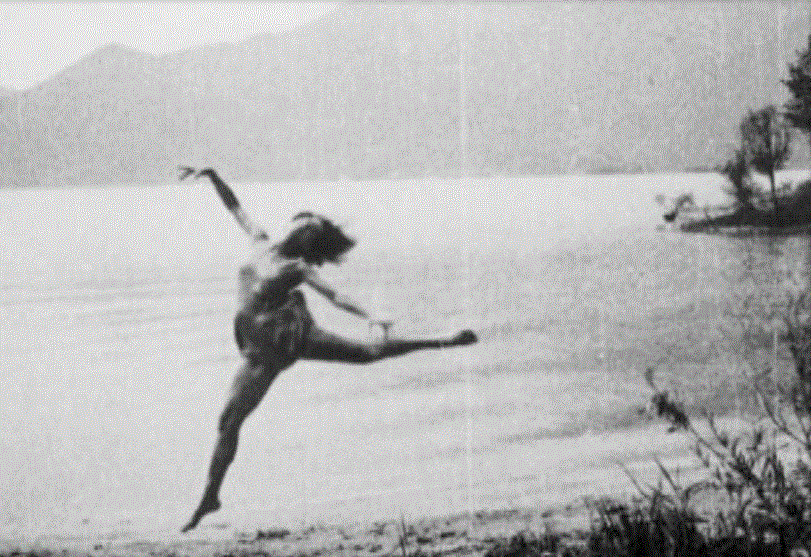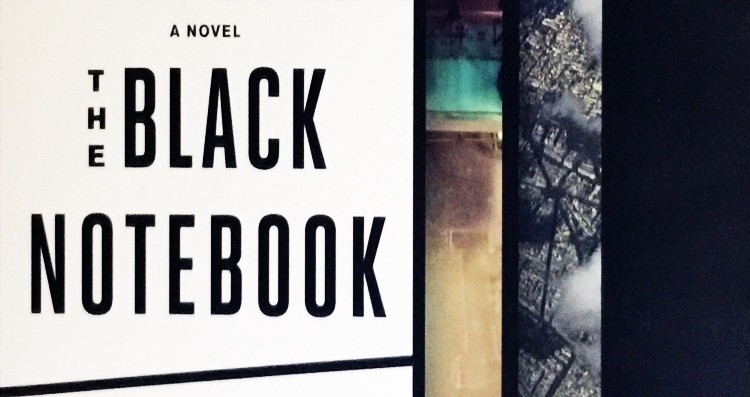Recommended Reading
This Is Your Brain on Clarice Lispector
Rivka Galchen recommends "The Egg and the Chicken" by Clarice Lispector

INTRODUCTION BY RIVKA GALCHEN
In Clarice Lispector’s 1960 story collection, Family Ties, there is a luminous and weird and perfect four-page story about a chicken. The story—“A Chicken”—begins: “She was a Sunday chicken. Still alive because it wasn’t yet nine in the morning.” She briefly takes flight, then flees from rooftop to rooftop “stupid, timid and free.” She is caught nonetheless, and returned to where she was meant to serve as a meal, and there on the kitchen floor, flustered, she lays an egg—she becomes a mother. The family is moved, watching the chicken roosting, breathing, “with her eyes buttoning and unbuttoning.” She is spared. The father, who had chased her rooftop to rooftop, later wonders to himself, “’And to think I made her run in that condition!”
And then, some indefinite amount of time later, “they killed her, ate her and years went by.” The end.
Four years after “A Chicken,” Lispector published “The Egg and the Chicken.” The not-quite sequel is arguably more luminous and weirder. It is charismatically longer, and thus less perfect, and also more capacious. In “A Chicken” the reader and speaker both emotionally identify most strongly with the chicken; in “The Egg and the Chicken” the identification is with an intelligence oddly more alien–a human one. “In the morning in the kitchen upon the table I see the egg… Immediately I perceive that one cannot be seeing an egg.” The story then moves from moods of philosophical circumspection to charming inversions (“I take the utmost care to not understand it”) to goofy assertions (“The Moon is inhabited by eggs”). At moments the simply stated logic is unexpectedly moving (“An egg is a thing that must be careful. That’s why the chicken is the egg’s disguise”) and then the story goes farther from there—from the chicken and back to the egg again. This story, with its goofy egg shape, somehow substantively covers perception, the unconscious, the female body, eating, catastrophe, freedom and labor. And it makes me smile.
Both of these stories from over fifty years ago feel like they are descendants of tomorrow. This makes it sensible to read the second one first, since it may have been the first one in its way.
–Rivka Galchen,
Author of Rat Rule 79
This Is Your Brain on Clarice Lispector
Clarice Lispector
Share article
“The Egg and the Chicken”
by Clarice Lispector,
Translated by Katrina Dodson
In the morning in the kitchen on the table I see the egg.
I look at the egg with a single gaze. Immediately I perceive that one cannot be seeing an egg. Seeing an egg never remains in the present: as soon as I see an egg it already becomes having seen an egg three millennia ago. — At the very instant of seeing the egg it is the memory of an egg. — The egg can only be seen by one who has already seen it. — When one sees the egg it is too late: an egg seen is an egg lost. — Seeing the egg is the promise of one day eventually seeing the egg. — A brief and indivisible glance; if indeed there is thought; there is none; there is the egg. — Looking is the necessary instrument that, once used, I shall discard. I shall keep the egg. — The egg has no itself. Individually it does not exist. Seeing the egg is impossible: the egg is supervisible just as there are supersonic sounds. No one can see the egg. Does the dog see the egg? Only machines see the egg. The construction crane sees the egg. — When I was ancient an egg landed on my shoulder. — Love for the egg cannot be felt either. Love for the egg is supersensible. We do not know that we love the egg. —
When I was ancient I was keeper of the egg and I would tread lightly to avoid upending the egg’s silence. When I died, they removed the egg from me with care. It was still alive. — Only one who saw the world would see the egg. Like the world, the egg is obvious.
The egg no longer exists. Like the light of an already-dead star, the egg properly speaking no longer exists. — You are perfect, egg. You are white. — To you I dedicate the beginning. To you I dedicate the first time.
To the egg I dedicate the Chinese nation.
The egg is a suspended thing. It has never landed. When it lands, it is not what has landed. It was a thing under the egg. — I look at the egg in the kitchen with superficial attention so as not to break it. I take the utmost care not to understand it. Since it is impossible to understand, I know that if I understand it this is because I am making an error. Understanding is the proof of error. Understanding it is not the way to see it. — Never thinking about the egg is a way of having seen it. — I wonder, do I know of the egg? I almost certainly do. Thus: I exist, therefore I know. — What I don’t know about the egg is what really matters. What I don’t know about the egg gives me the egg properly speaking. — The Moon is inhabited by eggs.
The egg is an exteriorization. To have a shell is to surrender. — The egg denudes the kitchen. It turns the table into a slanted plane. The egg exposes. — Whoever plunges deeper into an egg, whoever sees more than the surface of the egg, is after something else: that person is hungry.
Whoever plunges deeper into an egg, whoever sees more than the surface of the egg, is after something else: that person is hungry.
An egg is the soul of the chicken. The awkward chicken. The sure egg. The frightened chicken. The sure egg. Like a paused projectile. For an egg is an egg in space. An egg upon blue. — I love you, egg. I love you as a thing doesn’t even know it loves another thing. — I do not touch it. The aura of my fingers is what sees the egg. I do not touch it. — But to dedicate myself to the vision of the egg would be to die to the world, and I need the yolk and the white. — The egg sees me. Does the egg idealize me? Does the egg meditate me? No, the egg merely sees me. It is exempt from the understanding that wounds. — The egg has never struggled. It is a gift. — The egg is invisible to the naked eye. From one egg to another one arrives at God, who is invisible to the naked eye. — The egg could have been a triangle that rolled for so long in space that it became oval. — Is the egg basically a vessel? Could it have been the first vessel sculpted by the Etruscans? No. The egg originated in Macedonia. There it was calculated, fruit of the most arduous spontaneity. In the sands of Macedonia a man holding a stick drew it. And then erased it with his bare foot.
An egg is a thing that must be careful. That’s why the chicken is the egg’s disguise. The chicken exists so that the egg can traverse the ages. That’s what a mother is for. — The egg is constantly persecuted for being too ahead of its time. — An egg, for now, will always be revolutionary. — It lives inside the chicken to avoid being called white. The egg really is white. But it cannot be called white. Not because that harms it, but people who call the egg white, those people die to life. Calling something white that is white can destroy humanity. Once a man was accused of being what he was, and he was called That Man. They weren’t lying: He was. But to this day we still haven’t recovered, one after the next. The general law for us to stay alive: one can say “a pretty face,” but whoever says “the face,” dies; for having exhausted the topic.
Over time, the egg became a chicken egg. It is not. But, once it was adopted, it took that name. — One should say “the chicken’s egg.” If one merely says “the egg,” the topic is exhausted, and the world becomes naked. — When it comes to the egg, the danger lies in discovering what might be called beauty, that is, its veracity. The veracity of the egg is not verisimilar. If they find out, they might want to force it to become rectangular. The danger is not for the egg, it wouldn’t become rectangular. (Our guarantee is that it is unable: being unable is the egg’s great strength: its grandiosity comes from the greatness of being unable, which radiates from it like a not-wanting.) But whoever struggles to make it rectangular would be losing his own life. The egg puts us, therefore, in danger. Our advantage is that the egg is invisible. And as for the initiates, the initiates disguise the egg.
As for the chicken’s body, the chicken’s body is the greatest proof that the egg does not exist. All you have to do is look at the chicken to make it obvious that the egg cannot possibly exist.
And what about the chicken? The egg is the chicken’s great sacrifice. The egg is the cross the chicken bears in life. The egg is the chicken’s unattainable dream. The chicken loves the egg. She doesn’t know the egg exists. If she knew she had an egg inside her, would she save herself? If she knew she had the egg inside her, she would lose her state of being a chicken. Being a chicken is the chicken’s survival. Surviving is salvation. For living doesn’t seem to exist. Living leads to death. So what the chicken does is be permanently surviving. Surviving is what’s called keeping up the struggle against life that is deadly. That’s what being a chicken is. The chicken looks embarrassed.
Surviving is what’s called keeping up the struggle against life that is deadly. That’s what being a chicken is.
The chicken must not know she has an egg. Or else she would save herself as a chicken, which is no guarantee either, but she would lose the egg. So she doesn’t know. The chicken exists so that the egg can use the chicken. She was only meant to be fulfilled, but she liked it. The chicken’s undoing comes from this: liking wasn’t part of being born. To like being alive hurts. — As for which came first, it was the egg that found the chicken. The chicken was not even summoned. The chicken is directly singled out. — The chicken lives as if in a dream. She has no sense of reality. All the chicken’s fright comes because they’re always interrupting her reverie. The chicken is a sound sleep. — The chicken suffers from an unknown ailment. The chicken’s unknown ailment is the egg. — She doesn’t know how to explain herself: “I know that the error is inside me,” she calls her life an error, “I don’t know what I feel anymore,” etc.
“Etc., etc., etc.,” is what the chicken clucks all day long. The chicken has plenty of inner life. To be honest, the only thing the chicken really has is inner life. Our vision of her inner life is what we call “chicken.” The chicken’s inner life consists of acting as if she understands. At the slightest threat she screams bloody murder like a maniac. All this so the egg won’t break inside her. An egg that breaks inside the chicken is like blood.
The chicken looks at the horizon. As if it were from the line of the horizon that an egg is coming. Beyond being a mode of transport for the egg, the chicken is silly, idle and myopic. How could the chicken understand herself if she is the contradiction of an egg? The egg is still the same one that originated in Macedonia. The chicken is always the most modern of tragedies. She is always pointlessly current. And she keeps being redrawn. The most suitable form for a chicken has yet to be found. While my neighbor talks on the phone he redraws the chicken with an absentminded pencil. But there’s nothing to be done for the chicken: part of her nature is not to be of use to herself. Given, however, that her destiny is more important than she is, and given that her destiny is the egg, her personal life does not concern us.
Inside herself the chicken doesn’t recognize the egg, but neither does she recognize it outside herself. When the chicken sees the egg she thinks she’s dealing with something impossible. And with her heart beating, with her heart beating so, she doesn’t recognize it.
Suddenly I look at the egg in the kitchen and all I see in it is food. I don’t recognize it, and my heart beats. The metamorphosis is happening inside me: I start not to be able to discern the egg anymore. Beyond every particular egg, beyond every egg that’s eaten, the egg does not exist. I can now no longer believe in an egg. More and more I lack the strength to believe, I am dying, farewell, I looked at an egg too long and it started putting me to sleep.
The chicken who didn’t want to sacrifice her life. The one who chose wanting to be “happy.” The one who didn’t notice that, if she spent her life designing the egg inside herself as in an illuminated manuscript, she would be good for something. The one who didn’t know how to lose herself. The one who thought she had chicken feathers to cover her because she had precious skin, not understanding that the feathers were meant exclusively for helping her along as she carried the egg, because intense suffering might harm the egg. The one who thought pleasure was a gift to her, not realizing that it was meant to keep her completely distracted while the egg was being formed. The one who didn’t know “I” is just one of those words you draw while talking on the phone, a mere attempt to find a better shape. The one who thought “I” means having a one-self. The chickens who harm the egg are those that are a ceaseless “I.” In them, the “I” is so constant that they can no longer utter the word “egg.” But, who knows, maybe that’s exactly what the egg was in need of. For if they weren’t so distracted, if they paid attention to the great life forming inside them, they would get in the way of the egg.
I started talking about the chicken and for a while now I have no longer been talking about the chicken. But I’m still talking about the egg.
And thus I don’t understand the egg. I only understand a broken egg: I crack it on the frying pan. In this indirect way I give myself to the egg’s existence: my sacrifice is reducing myself to my personal life. I turned my pleasure and my pain into my hidden destiny. And having only one’s own life is, for those who have already seen the egg, a sacrifice. Like the ones who, in a convent, sweep the floor and do the laundry, serving without the glory of a higher purpose, my job is to live out my pleasures and my pains. I must have the modesty to live.
I pick up another egg in the kitchen, I break its shell and shape. And from this precise moment there was never an egg. It is absolutely essential that I be a busy and distracted person. I am necessarily one of those people who refuse. I belong to that Masonic society of those who once saw the egg and refused it as a way to protect it. We are the ones who abstain from destroying, and by doing so are consumed. We, undercover agents dispersed among less revealing duties, we sometimes recognize each other. By a certain way of looking, by a way of shaking hands, we recognize each other and call this love. And then our disguise is unnecessary: though we don’t speak, neither do we lie, though we don’t speak the truth, neither must we dissemble any longer. Love is when we are allowed to participate a bit more. Few want love, because love is the great disillusionment with all the rest. And few can bear losing the rest of their illusions. There are people who would volunteer for love, thinking love will enrich their personal lives. On the contrary: love is ultimately poverty. Love is not having. Moreover love is the disillusionment of what you thought was love. And it’s no prize, that’s why it doesn’t make people vain, love is no prize, it’s a status granted exclusively to people who, without it, would defile the egg with their personal suffering. That doesn’t make love an honorable exception; it is granted precisely to those bad agents, those who would ruin everything if they weren’t allowed to guess at things vaguely.
Few want love, because love is the great disillusionment with all the rest. And few can bear losing the rest of their illusions.
All the agents are granted several advantages so that the egg may form. It is no cause for envy since, even certain statuses, worse than other people’s, are merely the ideal conditions for the egg. As for the agents’ pleasure, they also receive it without pride. They austerely experience all pleasures: it is even our sacrifice so that the egg may form. Upon us has been imposed, as well, a nature entirely prone to much pleasure. Which makes it easier. At the very least it makes pleasure less arduous.
There are cases of agents committing suicide: they find the minimal instructions they have received insufficient, and feel unsupported. There was the case of the agent who publicly revealed himself as an agent because he found not being understood intolerable, and could no longer stand not being respected by others: he was fatally run over as he was leaving a restaurant. There was another who didn’t even have to be eliminated: he was slowly consumed by his own rebellion, his rebellion came when he discovered that the two or three instructions he had received included no explanation whatsoever. There was another, eliminated too, because he thought “the truth should be bravely spoken,” and started first of all to seek it out; they say he died in the name of the truth, but in fact he was just making the truth harder with his innocence; his seeming bravery was foolhardiness, and his desire for loyalty was naive, he hadn’t understood that being loyal isn’t so tidy, being loyal means being disloyal to everything else. Those extreme cases of death aren’t caused by cruelty. It’s because there’s a job, let’s call it cosmic, to be done, and individual cases unfortunately cannot be taken into consideration. For those who succumb and become individuals there are institutions, charity, comprehension that doesn’t distinguish motives, in a word our human life.
He hadn’t understood that being loyal isn’t so tidy, being loyal means being disloyal to everything else.
The eggs crackle in the frying pan, and lost in a dream I make breakfast. Lacking any sense of reality, I shout for the children who sprout from various beds, drag the chairs out and eat, and the work of the breaking day begins, shouted and laughed and eaten, white and yolk, merriment amid fighting, the day that is our salt and we are the day’s salt, living is extremely tolerable, living keeps us busy and distracts us, living makes us laugh.
And it makes me smile in my mystery. My mystery is that being merely a means, and not an end, has given me the most mischievous of freedoms: I’m no fool and I make the most of things. Even to the point of wronging others so much that, frankly. The fake job they have given me to disguise my true purpose, since I make the most of this fake job and turn it into my real one; this includes the money they give me as a daily allowance to ease my life so that the egg may form, since I have used this money for other purposes, diverting the funds, I recently bought stock in Brahma beer and am rich. All this I still call having the necessary modesty to live. And also the time they have granted me, and that they grant us just so that in this honorable leisure the egg may form, well I have used this time for illicit pleasures and illicit pains, completely forgetting the egg. That is my simplicity.
Or is that exactly what they want to happen to me, precisely so the egg can carry out its mission? Is it freedom or am I being controlled? Because I keep noticing how every error of mine has been put to use. My rebellion is that for them I am nothing, I am merely valuable: they take care of me from one second to the next, with the most absolute lack of love; I am merely valuable. With the money they give me, I have taken to drinking lately. Abuse of trust? But it’s because nobody knows how it feels inside for someone whose job consists of pretending that she is betraying, and who ends up believing in her own betrayal. Whose job consists of forgetting every day. Someone of whom apparent dishonor is required. Not even my mirror still reflects a face that is mine. Either I am an agent, or it really is betrayal.
I have tried to consider things this way: that much has already been given me, that they have granted me everything that might be granted; and that other agents, far superior to me, have also worked solely for something they did not know.
Yet I sleep the sleep of the righteous because I know that my futile life doesn’t interfere with the march of great time. On the contrary: it seems that I am required to be extremely futile, I’m even required to sleep like one of the righteous. They want me busy and distracted, and they don’t care how. Because, with my misguided attention and grave foolishness, I could interfere with whatever is carried out through me. It’s because I myself, I properly speaking, all I have really been good for is interfering. What tells me that I might be an agent is the idea that my destiny surpasses me: at least they really did have to let me guess that, I was one of those people who would do their job badly if they couldn’t guess at least a little; they made me forget what they had let me guess, but I still had the vague notion that my destiny surpasses me, and that I am an instrument of their work. But in any case all I could be was an instrument, since the work couldn’t really be mine. I have already tried to strike out on my own and it didn’t work out; my hand trembles to this day. Had I kept at it any longer I would have damaged my health forever. Since then, ever since that thwarted experiment, I have tried to consider things this way: that much has already been given me, that they have granted me everything that might be granted; and that other agents, far superior to me, have also worked solely for something they did not know. And with the same minimal instructions. Much has already been given me; this, for example: every once in a while, with my heart beating at the privilege, I at least know that I am not recognizing anything! with my heart beating from emotion, I at least do not understand! with my heart beating from trust, I at least do not know.
But what about the egg? This is one of their ploys: while I was talking about the egg, I had forgotten the egg. “Talk, talk!” they instructed me. And the egg is fully protected by all those words. Keep talking, is one of the instructions, I am so tired.
Out of devotion to the egg, I forgot it. My necessary forgetting. My self-serving forgetting. Because the egg is an evasion. In the face of my possessive adoration it could retreat and never again return. But if it is forgotten. If I make the sacrifice of living only my life and of forgetting it. If the egg becomes impossible. Then—free, delicate, with no message for me— perhaps one last time it will move from space over to this window that I have always left open. And at dawn it will descend into our building. Serene all the way to the kitchen. Illuminating it with my pallor.








